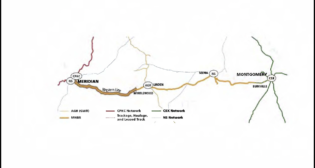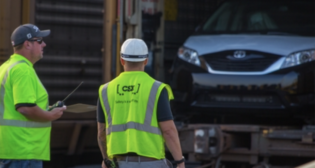
Bigger trucks: House T&I just doesn’t get it
Written by Lawrence H Kaufman, Contributing EditorHere we go again.
A “friendly” GOP House committee chairman has introduced legislation that would reauthorize the expired surface transportation program. Without benefit of any hearings, the bill introduced by Rep. John Mica (R-Fla.) would continue highway and bridge spending at levels near those of the measure that expired more than two years ago.
What is — and should be — very disturbing to railroads is a provision that would allow states to increase the permissible maximum weight of trucks and cargo from the current 80,000 pounds to 97,000 pounds, a 21% increase.
That might not be so bad, if truckers already were paying their allocable share of the cost of building and maintaining the highways the public provides. They do not. Independent studies say the big rigs now pay about 20% less than they should, and there is no realistic belief that the Republican-controlled House will increase taxes on truckers.
To the extent that trucks do not pay their allocable share, they are effectively subsidized, and that allows them to price their services at lower rates than they would if they pay their full share. That allows trucks to divert traffic from railroads, which own and maintain their rights-of-way and pay ad valoremtaxes for the privilege.
Trucking interests already are in full defensive mode, decrying the behavior of railroads in attacking one of their best customers — trucks. It is true that trucks have become a significant and valued customer of rail intermodal service, the fastest growing business railroads have. Just look at J.B. Hunt and what it has invested in intermodal containers.
That does not mean railroads should simply accept the proposed legislation. If given the payload increase of the bill, truckers would become more competitive with rail on more traffic. Truckers would not hesitate to abandon intermodal and convert traffic back to all-highway movement.
Trucks use intermodal for one reason only. It makes economic sense. Trucks use four times as much fuel as railroads to move one ton of freight one mile. Rail rates are less than trucking costs. Intermodal allows truckers to avoid paying drivers more, and it allows truckers to overcome the impact of new, more restrictive, driver hours of service regulations.
That’s why trucks increasingly are on trains. It isn’t to be charitable. It is to make money. And that’s why if they are allowed to load trailers with an additional eight tons of freight, they will.



